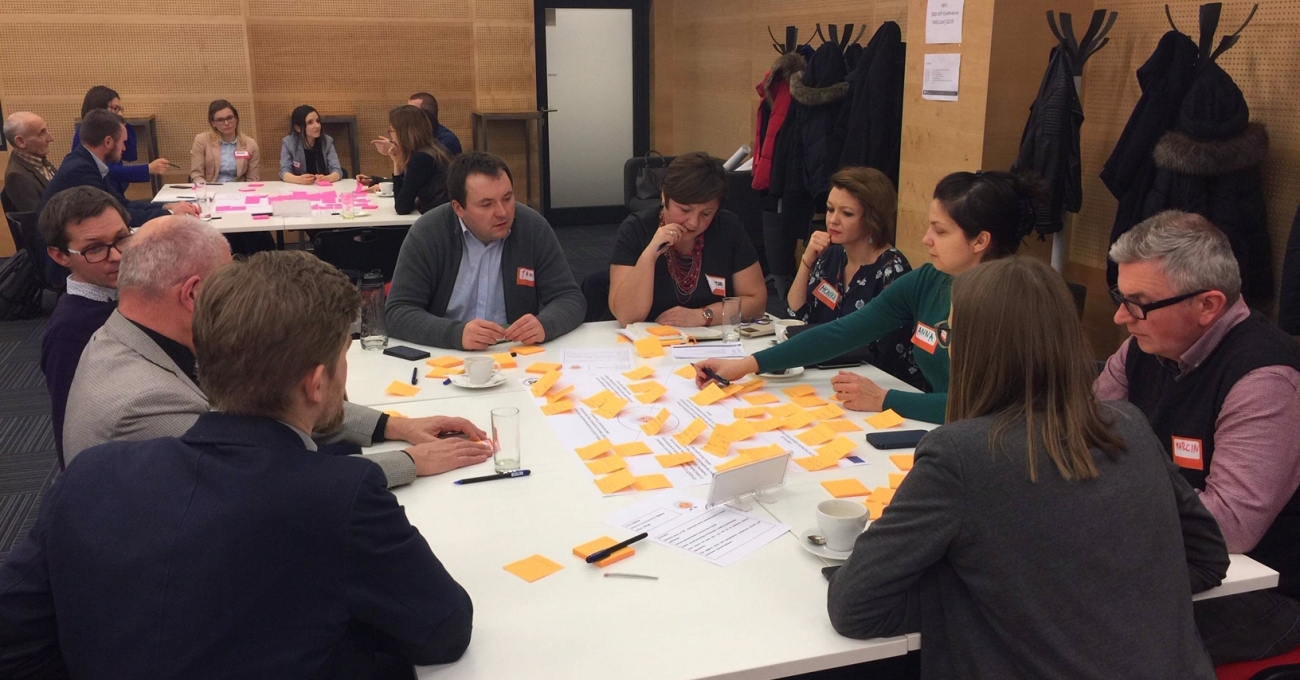
The Kraków Technology Park as a partner of the Marshall Office of the Malopolska Region supports the Malopolska authorities in the consultation process of updating the Air Protection Program for Malopolska. The process was initiated with the official opening meeting that took part on 11th of February 2019. As the follow up of this meeting two workshops are planned to increase the understanding and engagement of varied groups of stakeholders and involve them in the co-creation process addressed to find the best instruments, mechanism and solutions for improving the air quality in Malopolska.
On 4th March Krakow Technology Park organised its first co-creation workshop since that meeting in February. The co-creation workshop was devised to be an open forum for dialogue between people interested in defining ideas to improve the air quality in Krakow and Malopolska Region.
The aim of the workshop was to analyse jointly with the participants of the workshop the problems affecting the poor air quality in the region and to define ideas or solutions that should be introduced to improve the situation. Recruitment for the workshops was carried out in an open manner using social channels as well as addressing the participants who were involved with the consultation meeting in February.
In the workshop, there were 46 people participating from various sectors – administration, business, science to NGO’s together – who were coupled with individuals from the small villages near Kraków. The participants of the workshop were divided into five groups. Each group had its own moderator that was a KTP expert responsible for managing the process of co-creation. The work of the group was focused on one persona. There were 4 sessions: analysis of attitudes and defining problems, looking for ideas and presenting ideas for solving the problem, defining priorities and presenting the group’s work for all gathered. The workshop was ended with presentions around the priorities identified in each group, searching for synergies and shaping the plan for the next workshop.
The participants cooperated with each other for the whole duration of the workshop, willingly undertaking many tasks. At times there was a more decisive discussion, but always substantive. Due to the limited time, not all dilemmas and differences of opinion have been resolved.
The 2nd workshop that is planned for 1st April will be building on from this workshop, with the aim of finding solutions to solve the air quality problems.